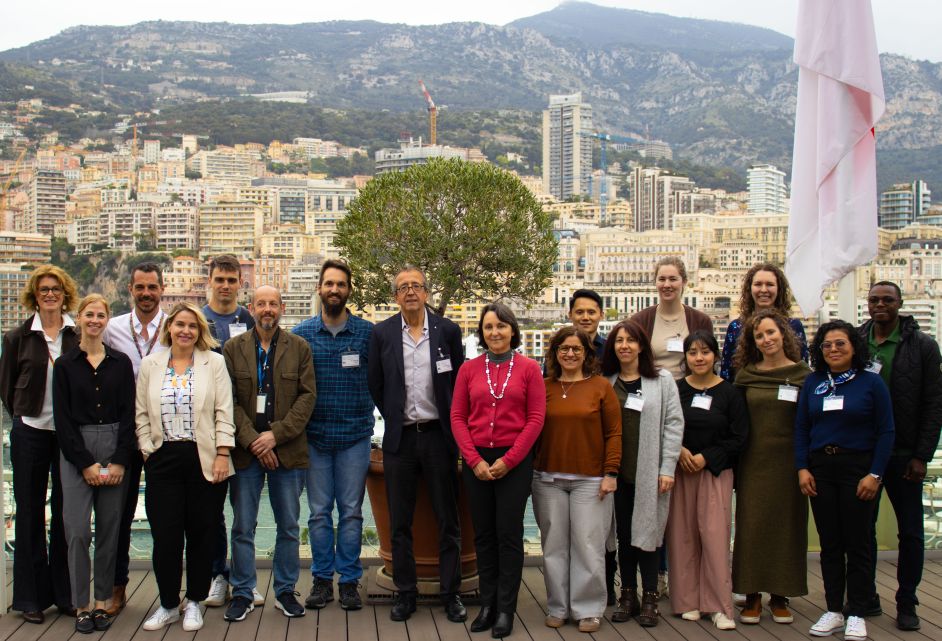Ten participants from as many countries came together in Monaco in April 2025 for a training course on the biological impacts of ocean alkalinity enhancement (OAE), organized by the IAEA Ocean Acidification International Coordination Centre (OA-ICC).
The ocean is under pressure from warming, acidification, and oxygen loss, adversely impacting marine ecosystems and the communities and societies who depend on them. However, the ocean, covering 70% of Earth’s surface, can also be a vital part of the solution and our ally to mitigate and adapt to climate change. Meeting the objectives of the Paris Agreement to limit warming to well below 2o C will not only require drastic cuts in carbon dioxide (CO2) emissions, but also the active removal of carbon CO2 on the order of 100–1000 Gt CO2 over the 21st century (IPCC, 2018). Ocean alkalinity enhancement (OAE) is a marine Carbon Dioxide Removal (mCDR) approach which is receiving growing interest from scientists, policy makers, and industry. It entails the addition of alkaline materials to the sea with the goal to increase the ocean’s potential to absorb CO2. There is limited scientific information to date about the impact that OAE might have on marine organisms and ecosystems. Building technical expertise to assess ecological impacts of OAE is critically needed to allow for informed policy decisions about this approach.
The OA-ICC training focused on teaching scientists how to perform laboratory experiments to assess the potential impacts of OAE on marine organisms, building on the Centre's expertise in training scientists to study the impacts of changing carbonate chemistry. Through lectures and hands-on laboratory exercises, participants learned how to design purposeful experiments, analyze complex datasets, avoid typical pitfalls, and ensure data comparability with other studies. Lectures on the broader context and implications of OAE was also provided (e.g., societal and governance aspects). The course was largely based on the 2023 Guide to Best Practices for Ocean Alkalinity Enhancement Research, especially the chapters on experimental design. It brought together 10 participants from the following countries: Argentina, Chile, China, Colombia, Germany, Greece, Italy, Mozambique, Portugal, and the USA.
The course was organized by the IAEA OA-ICC in partnership with the Prince Albert II of Monaco Foundation.

